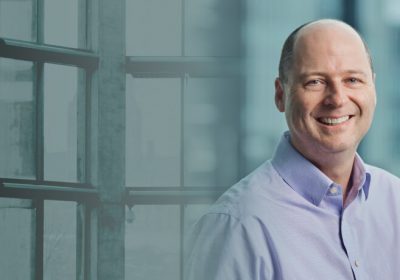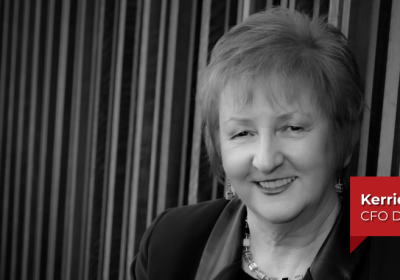
- Author: Richard McBride, Editor | CFO Magazine A/NZ
- Posted: July 9, 2024
A Pipeline to Fuel the Future of Finance > Stephan Anderson, CFO, PepsiCo A/NZ
If we fail to build a pipeline of finance talent that includes more than just accountants, we risk going back to the old days of finance as a function rather than a strategic partner to the business, says PepsiCo A/NZ CFO Stephan Anderson.
CFO Magazine A/NZ Editor, Richard McBride, had the opportunity to sit down with Stephan and discuss smarter ways to attract and retain the right people as the traditional talent pipeline scales back due to offshoring and automation.
RM – Stephan, thank you for speaking with CFO Magazine A/NZ. Your thoughts about the future of the finance planning talent pipeline are interesting. Can you elaborate on what they are?
SA – Thanks, Richard. I think there are two main drivers.
In the past, very generally, people could travel through the traditional accounting route, through a Big Four firm, and do three years to earn their qualification and get relevant experience. At some point in this journey, the choice is always to stay and progress or move into industry.
But now, what companies and industry expect from finance people has changed. They want someone who demonstrates a deep understanding of business and has the ability to drive value . They want people who know where the key areas are for the business and who are comfortable sitting with stakeholders, challenging them and pushing for a better outcome.
RM – So what’s the skillset finance people need, going forward?
SA – With the growing emergence of AI and more sophisticated data tools, I’m looking for people who can interpret and analyse the data that AI and other tools can provide, then sit down with a CEO or their business partner and give depth and meaning to the information they are receiving.
They need fundamental finance and accounting skills and knowledge, but more importantly they need experience with people and with business. Plus, they need to be able to be agile and adapt their skills to various situations and stakeholders.
They must be comfortable to ask challenging questions and to provide insightful solutions to real business problems.
RM – In the environment you’ve described, how do graduate accountants find that experience.
SA – Some will get the experience through traditional pathways. But as time goes on, I’m seeing less young talent coming through those pathways, so it’s probably more about being less fixated on having someone with an accounting background as the next CFO. It’s a shift in mind set and something I’m passionate about – I talk to my team about it a lot.
I think there’s a real opportunity to open our minds around how we recruit into the finance space. At PepsiCo we’re currently looking at developing a finance intern program that is open to people with non-finance qualifications to open up the talent pool.
RM – So we broaden our definition of what makes a finance professional. To do that, where do we look?
SA – We recently brought an engineer into our team. We’ll give her the learning around fundamental financial processes, etc., but she has experience that makes her comfortable in senior meetings, in challenging her peers and having an opinion.
Does she have a good overview of IFRS 18? Probably not. Do I need her to know that? Probably not. But do I need her to have an analytical brain that can take data, analyse it, and then put a challenge out there? Yes. And if you think of the skill sets engineers have – accuracy around detail, data analysis, looking at plans and developing solutions to problems – that’s the same skill set I need on my team.
RM – And so, in a way we’re re-imagining what the finance function is within an organisation?
SA – We must accept that much of the core accounting processes and first level of analysis will be done offshore. We recognise the strategic role finance now plays in good organisations. And yes, we’re understanding that we need to have a discussion around what we want the finance function in large multinationals to be.
Do we want to be business partners, or do we want to go back to finance just owning reports and ensuring financial compliance?
RM – A lot has been said about the benefits of diversity in a team. What added benefits do people who are not from an accounting background bring?
SA – It’s about the angle from which they look at a problem. A traditional accountant will start from the financials. If the numbers look okay then they’re relatively comfortable, but if they’re not digging deeper, there could be something underlying they don’t see.
Someone who’s not an accountant will likely have a different starting point. They will come at it with a different mindset and approach. It’s not necessarily better or worse, but it’s valuable because it’s different and diverse thinking is great to have in any team.
RM – Where does working-from-home fit into the discussion around the future of finance?
SA – Post-COVID, people think they can do their job by spending just one or two days per week in the office. However, in doing so they’re potentially reverting the finance function back 10 or 15 years, because they’re not having those water cooler conversations, they are not sitting next to their business partners. So, COVID, in my opinion has not been good to finance or other support functions because of the role it played in isolating these teams from the business.
If you’re spending four days at home per week, how do you interact with people? How do you walk into stores with a sales manager? How do you go to manufacturing plants? How do you understand infrastructure programs? How do you continue to become an indispensable partner and value driver for the organisation?
RM – What’s the main message you’d like to communicate to readers?
SA – The pipeline of talent coming into the finance function is becoming scarcer because of what has happened in offshoring and automation. An important part of the solution, I believe, will involve embracing candidates from a non-finance background whilst being very clear about the problem we’re trying to solve, and what role we’d like to play in the organisation.
RM – Thank you Stephan, for sharing your time and insights with CFO Magazine A/NZ.








